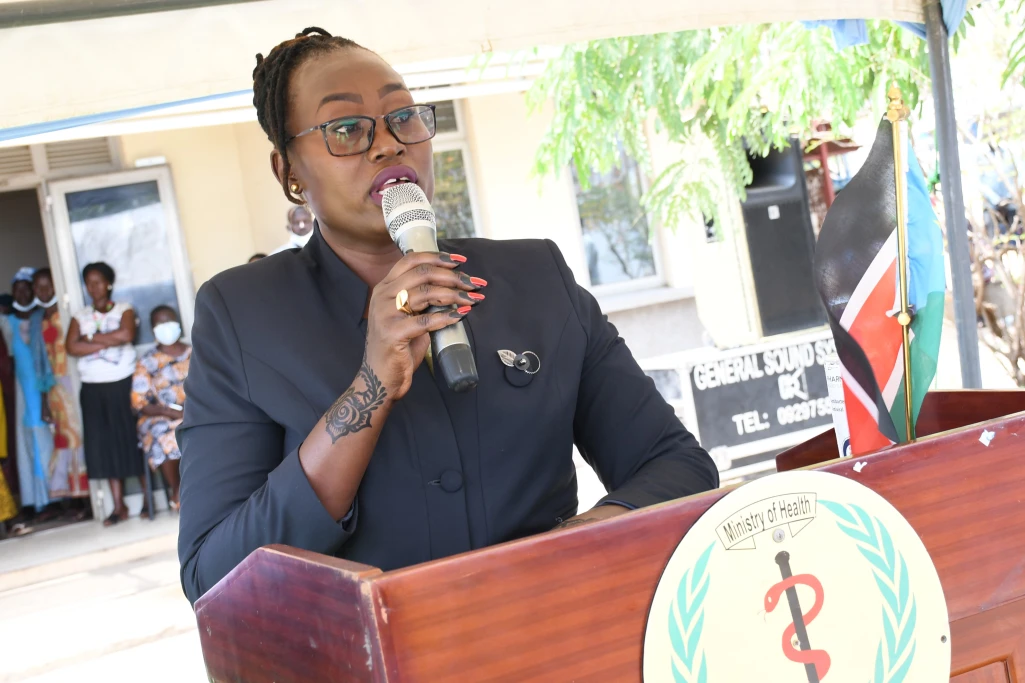
The newly appointed national minister of health, Yolanda Awel Deng, has been told to tackle poor healthcare services, staff welfare and the lack of enough funds facing the health sector in South Sudan.
Senior officials in the ministry, the health specialized committee at the national transitional parliament, and partners made these calls during the inauguration ceremony to welcome the new minister on Thursday.
Dr. Victoria Anib, undersecretary of the ministry of health, says South Sudan mainly depends on donors’ funds to buy drugs and other essential supplies. She says the government budget only pays staff salaries, which do not come on time.
“Most of our budget goes on salaries and transport to the states. We need to provide essential drugs because most of the drugs are donated by our partners. We need to contribute to ARV and pay our co-financing for the global fund.” She spoke.
Dr. Anib called the Minister and specialized health committee to be whistleblower in advocating and lobbying for more funds to reach 15 percent of the Abuja declaration.
In April 2001, African governments pledged to allocate at least 15% of their annual budgets to the health sector.
A member of the health committee in the transitional national legislative assembly, Prof. Peter Adwok, said South Sudan does not own its health system due to insufficient equipment. He described health as “supreme magnitude” that cannot be ignored.
“We don’t have a machine to test whether the virus has changed or not, and we take our blood to Uganda, such thing need to be addressed.”
The lawmaker (Adwok) promised to convivence members of August to prioritize Health in South Sudan and increase the budget.
Representative of World Health Organization (WHO) Dr. Fabian Ndenseko says sectors have progressed in South Sudan despite challenges that undermine health system capacity and capabilities. He says the life expectance at birth has increased from 55 to 58 years, and the maternal mortality rate has declined moderately between 2010 and 2018.
Ndenseko said despite the progress made. Health service remains weak to deliver services. The national budget for Health is below 15%, and 70 percent of healthcare in the country depends on development assistance.
He urged the Minister to collectively generate a common understanding of the progress, challenges, best practices and identify issues that need to be addressed to improve health performance.
Minister of Health Yolanda Awel Deng commended the support of international partners, saying their safe assistance life of ordinary citizens.
She promised to address some of the issues raised and called for a cooperative spirit of collective effort to achieve significant progress in the health sector.
“The importance of working together with intend to serve our nation, please have the spirit of forgiveness, open dialogue for us to be productive,” she said.
Hon. Yolanda replaced Elizebath Achuei Yuel, who was appointed in 2020 on the ticket of the Sudan People’s Liberation Movement in Opposition (SPLM-IO). She was sworn into office on Wednesday this week.